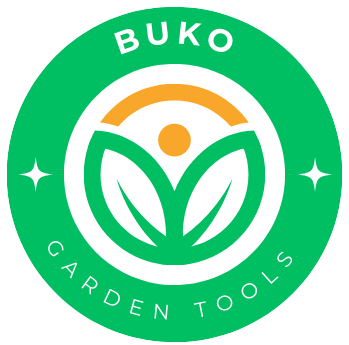🌿 Grow Green, Live Clean: Embracing the Power of Sustainable Gardening
Gardening has long been a symbol of peace, patience, and beauty. But in today’s world—where environmental concerns are growing and the need for eco-conscious living is more urgent than ever—gardening has also become a powerful act of sustainability. It’s not just about planting for aesthetic pleasure anymore. It’s about cultivating life while giving back to the planet.
At BU-KO Garden Tools Society, we believe that every backyard, balcony, or community plot holds the potential to be a miniature ecosystem that supports biodiversity, conserves resources, and reduces environmental harm. Whether you’re an experienced gardener or just starting out, there are meaningful, practical steps you can take to garden in a way that is both beautiful and beneficial to the Earth.
🌱 Why Sustainable Gardening Matters
Traditional gardening practices—while well-intentioned—often rely heavily on synthetic fertilizers, chemical pesticides, and high water usage. These methods can degrade soil health, pollute waterways, and disrupt local ecosystems.
Sustainable gardening, on the other hand, is about creating harmony between your garden and the natural world. It’s a method that supports long-term ecological balance by:
- Improving soil quality naturally
- Reducing landfill waste through composting
- Conserving water and energy
- Supporting pollinators, insects, birds, and wildlife
- Avoiding harmful chemicals and synthetic materials
The beauty of this approach is that it’s not just environmentally sound—it’s also economical, rewarding, and often results in healthier, more resilient plants.
♻️ Practical Ways to Make Your Garden More Sustainable
Let’s explore some of the most impactful, easy-to-implement strategies that can turn your garden into a green haven for both you and the planet:
1. Start a Compost System
One of the easiest and most effective ways to reduce waste and enrich your soil is by composting. Instead of sending kitchen scraps and garden trimmings to the landfill, you can turn them into rich, nutrient-packed humus for your plants.
What to compost:
- Fruit and vegetable peels
- Coffee grounds and filters
- Eggshells
- Grass clippings and leaves
- Shredded paper or cardboard
What to avoid:
- Meat, dairy, and oily foods
- Pet waste
- Diseased plants
A well-balanced compost pile can reduce your household waste by over 30%, while giving your plants a healthier, more natural growing medium.
2. Switch to Organic Fertilizers
Instead of synthetic fertilizers, opt for organic alternatives such as compost tea, worm castings, seaweed extract, or well-aged manure. These natural nutrients improve soil structure, feed beneficial microorganisms, and prevent harmful chemical runoff.
Bonus tip: Many organic fertilizers release nutrients slowly, which means plants absorb them over time, reducing the risk of overfeeding.
3. Harvest Rainwater
Why use treated tap water when nature provides a free alternative? Collecting rainwater with barrels or cisterns helps reduce water bills and eases pressure on municipal water systems, especially during dry seasons.
Use this harvested water to irrigate your garden during drought periods or to top off birdbaths and wildlife ponds.
4. Go Native
Native plants are adapted to your local climate and soil, which means they generally require less water, fewer chemicals, and minimal maintenance. They’re also better at supporting local wildlife, including bees, butterflies, and birds.
Not sure what’s native to your area? Look for regional planting guides or visit local botanical gardens for ideas.
5. Natural Pest Control
Avoiding harsh pesticides doesn’t mean letting your plants fend for themselves. There are many eco-friendly ways to manage pests:
- Encourage beneficial insects like ladybugs and lacewings
- Use companion planting to deter pests (e.g., marigolds repel aphids)
- Try DIY sprays using neem oil, garlic, or chili
- Install insect hotels and birdhouses to attract natural predators
6. Mulch Like a Pro
Mulching helps retain moisture, suppress weeds, and regulate soil temperature—all while reducing the need for chemical weed killers. Use organic mulch like straw, bark chips, or shredded leaves, which also decompose over time and enrich your soil.
7. Create Habitats for Wildlife
Your garden can be a sanctuary not just for plants, but for a variety of creatures who rely on green spaces to survive.
How to welcome wildlife:
- Plant flowering herbs to attract pollinators
- Build small brush piles for sheltering critters
- Add a birdbath or small pond for water
- Grow nectar-rich flowers in different colors and bloom times to feed pollinators throughout the seasons
The more life you welcome into your garden, the more balanced and healthy your mini-ecosystem will become.
🌼 Sustainability Enhances Beauty
Some gardeners worry that sustainability might limit their design choices or make their garden look “untamed.” In reality, eco-friendly gardens often feel richer, more alive, and more inspiring.
Natural textures, diverse foliage, buzzing bees, and fluttering butterflies add layers of interest and activity to your garden. Your space becomes more than a pretty backdrop—it becomes part of the natural world’s story.
🌎 Join the Movement: Sustainable Gardening Workshops at BU-KO
If you’re ready to take your eco-conscious gardening journey to the next level, we invite you to join us at one of our sustainable gardening workshops. These hands-on sessions cover:
- Setting up compost bins and rainwater collection
- Building pollinator-friendly garden beds
- Crafting a year-round planting plan with native species
- Organic soil care and zero-waste garden planning
Our instructors combine real-world experience with scientific knowledge to help you create a garden that’s not only beautiful but meaningful.
🌻 Final Thoughts: Your Garden, Your Impact
Sustainability begins at home—right in your garden. Every time you compost, conserve water, plant a wildflower, or skip the chemicals, you’re contributing to a greener, healthier world.
So let your garden be more than just a retreat. Let it be a reflection of your values and a gift to the planet.
Grow green, live clean—and inspire others to do the same.

